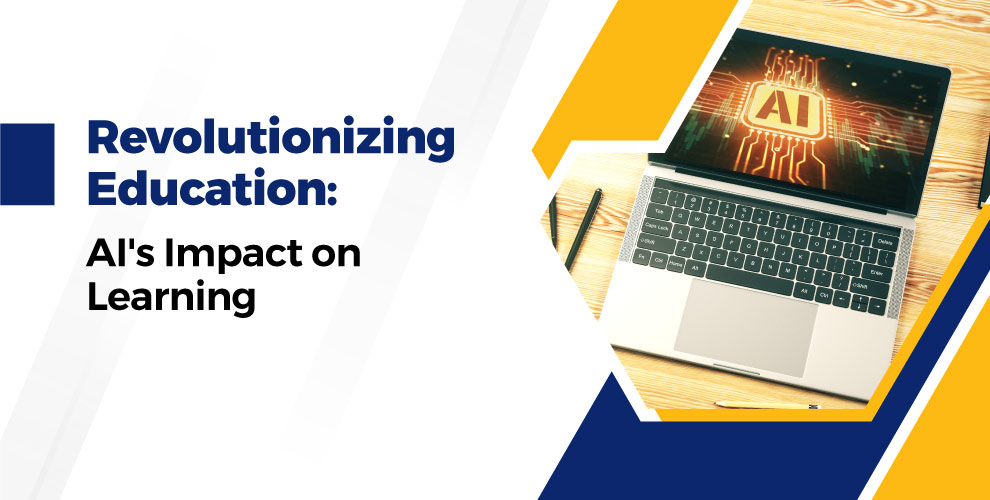The most significant techniques of AI are certainly transforming education which are easy to transform and automate routine tasks. Nowadays, AI performs all administrative functions which are monitoring attendance, and handling registration courses. With this you can save time and focus on high-value tasks like student engagement. AI in education benefits individualized learning where algorithms provide personalized recommendations. This individualized approach helps the students to engage and motivate increasing their academic performance. The best engineering college in Coimbatore helps students gain practical knowledge on how to better their techniques. This article explains the importance and uses cases of artificial intelligence to help their students.
Use Cases of AI in Transforming Learning:
Personalized Learning: Every student responds differently to information. While some learn things quickly, others take time. The idea of personalized instruction for each student disappeared from the traditional educational system. AI in online learning can help in the field of education, artificial intelligence promises that educational software is customized for every student. Also, the system supports the way students understand different lessons and adjusts to that process to reduce the burden by utilizing supporting technologies such as machine learning in education.
Task Automation: AI is required in the majority of value-added tasks in virtual classrooms and school education. AI solutions for education can also be used to create a customized teaching process, grade tests, check homework, organize research papers, keep track of reports, create presentations and notes, and handle additional administrative tasks. For this reason, companies depend on incorporating AI technology into their operations to accomplish daily objectives.
Determining Classroom Vulnerabilities: Using online education to maintain beneficial environmental effects is one of the many educational benefits of AI technology. However, many experts feel AI is going to take the place of human interaction in education. Now, it may not apply to the education sector, however it does to other industries. AI and education combine to improve online learning and conventional classroom teaching. Artificial Intelligence simply assists the experts by personalizing the learning process for every student.
Skill gap: Developing students’ skills is an important way for companies to close the digital gap. The software and application development options based on machine learning and artificial intelligence provide widely accessible and reasonably priced upskilling opportunities for students. It’s not just for students: retraining and upskilling the current workforce for business can raise spirits and encourage an across-the-business effort to advance creativity.
Customized Data-Based Feedback: In the workplace or classroom, feedback is an essential component of learning experience design. Effective teaching incorporates ongoing feedback, which is the main difference between it and content delivery. Artificial intelligence (AI) in education examines and provides grades based on standard information because feedback needs to come from a reliable source. A data-driven feedback system reduces bias in learning, increases student satisfaction, and allows it easier to identify areas in which a student’s skills are lacking. This feedback is customized based on each employee’s and student’s performance to be documented in the system.
Secure and Decentralized Learning Systems: AI is enabling the education sector to develop new ideas quickly, but it is frequently compromised by problems with data security, accessible data that can be altered, outdated certification procedures, etc. Despite all of these difficulties, decentralized AI-based solutions have an opportunity to positively transform educational technology.
Conversational AI: An increasingly common instance of AI utilized in education for collecting data and providing relevant information and support is chatbots. Teachers and business professionals similarly gain from this when it comes to student engagement in personalized learning. By closely tracking the way that students use content and adapting to meet their needs, conversational AI in education provides intelligent teaching. Around the world, individuals choose corporate training programs and distance learning because they don’t need to take time out of their jobs, families, or classes.
Smart content creation: Teachers and researchers can also generate creative content for easy teaching and learning with the aid of AI and ML in education. Here are some instances of intelligent content creation using AI:
- Artificial Intelligence (AI) smart content creation promotes the real-life experience of visualized web-based study environments, where traditional teaching methods can only provide lab trials as visual elements. With 2D and 3D visualization, where students can interpret information alternatively, technological advances help.
- Bite-size learning is possible created through low-storage study materials and other digital lessons with the help of artificial intelligence in education. In this manner, the complete study material can be utilized by experts and students without occupying much system space.
Conclusion: Artificial intelligence in education begins to stay where it embraces the influences in classrooms and educational institutions which only grow. The BTech in data science and artificial intelligence in Coimbatore highlights the students who continue to advance and become more accurate in its current apps. The use of AI apps in education will become more complicated and advanced to improve data analysis efficiency and give students a more personalized experience.


